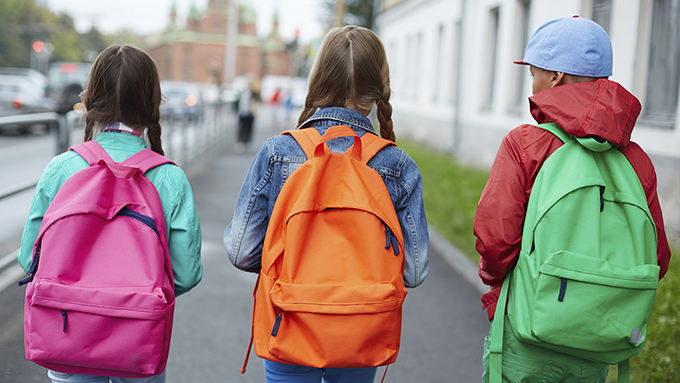
Covid-19 has shown that the world we know can change at any moment. The stress caused by economic, political and social insecurity can lead us to think that planning for the future, even the near and simple one, may seem impossible. For many people, these situations have only compounded the growing sense of insecurity.
Although these are times of uncertainty, children have to continue to grow and develop. Children still have needs and capacities that must be attended to: socialize, develop their autonomy, movement, knowledge of the environment …
Different investigations point to the benefits of going to school in an active way (walking, cycling or scooter) in the integral well-being of minors, not only in the physical aspects, but also in the social, emotional and academic ones.
Along these lines, researchers from the University of Granada have shown that going to class in this way improves self-esteem, children’s autonomy and their individual health.
But why is it still important to walk to school with friends despite the pandemic? Covid-19 has brought with it many changes in the social sphere that have influenced and directly influence the lives of children. In order to control the health crisis, various limitations have been imposed on both mobility and relationships.
Projects paralyzed
Among other measures, the new normal has paralyzed projects that were underway and that improve the quality of life and well-being of minors, among which are the project Caminos Escolares .
It may seem that the fact that a boy or girl is walking to school with other children and without an adult to watch their steps does not imply any change, but with each step they take, that child, that girl, discovers their environment, learns, grows … This path, which he travels every day, helps him gain self-confidence, to be co-responsible, to know that there are adults who trust them, to build relationships of closeness and mutual support between equal. In short, to develop their autonomy and their interactions gradually.
A map of minimums
To this end, from Haurren Hirien Sarea –Basque Network of Cities for Children– a map has been drawn –some minimums and some actions- that can help to land on the specificity of each situation or imagine a possible route.
Eskolara Lagunekin (To school with friends) is a municipal commitment to transform the common space and our relationship / mobility habits through the promotion of the autonomy of movement of children in the city.
The way from home to school becomes a space that takes place without the help of an adult figure. For this, the transformation of the environments and the involvement of the community, such as the people in the shops, means that these transits are safe.
What do you get on the way to school?
Different entities and people who share, beyond concerns, the commitment to restore the autonomy of children from community health and the development of our towns and cities have drawn up a document because we know that today, in this context of a pandemic, to walk going to school with friends makes more sense than ever.
Today it is also necessary to continue encouraging this type of strategies and projects such as the School Paths to promote the autonomy of children and to promote, among others, these aspects:
- Carrying out physical activity and active travel.
- The discovery and knowledge of its neighborhoods, towns and cities.
- The strengthening of networks and the fabric of alliances.
- The enhancement of the community.
- The transformation of relationships and spaces.
- Contribution to the design of new strategies.
- Family conciliation.
For all these reasons, as stated in the COVID 19 manifesto : A community response to a social pandemic , from the Covid-19 Community Health Observatory, it is important not only to have a health strategy, but also to develop joint interventions from the entire society with which you learn to live with the pandemic.
It is necessary to design new ways to protect the most vulnerable people by promoting education and social development of childhood and youth, improving the quality of life, social interaction and personal care.
Author Bios: Professor in the Department of Didactics and School Organization and University of the Basque Country / Euskal Herriko Unibertsitatea
This article has been co-authored with Pedro Blanco ( Solasgune ), Eneritz González ( Solasgune ), Patxi Cirarda ( Basque Government Health Department ), Aitziber Benito ( Basque Government Health Department ) and Goizalde Atxutegi ( Innobasque ).
